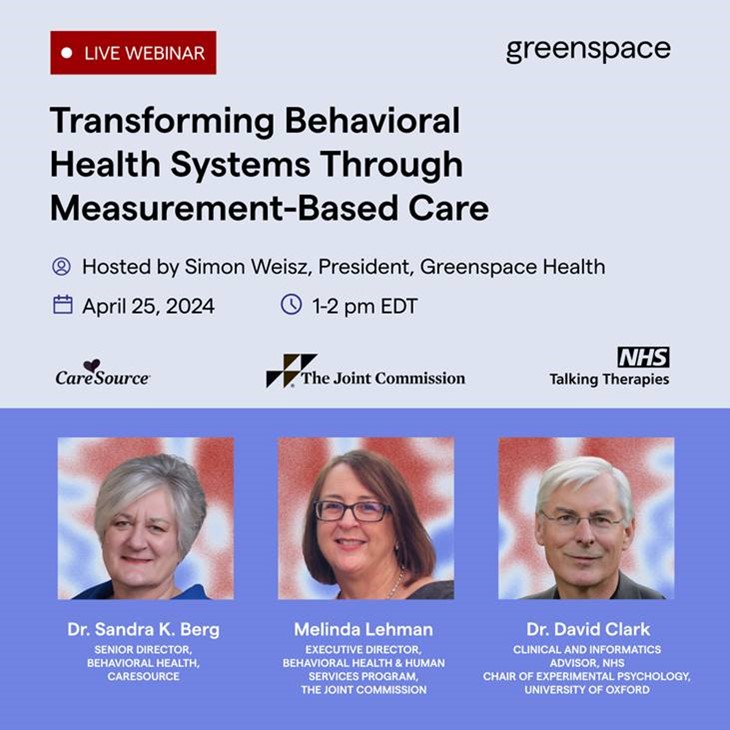OIG: Lack of BH Providers in Medicare/Medicaid Impedes Access to Care
Lack of BH Providers in Medicare and Medicaid Impedes Enrollees’ Access to Care
The Office of the Inspector General (OIG) has released a report citing there are not enough behavioral health providers participating in Medicare and Medicaid networks.
In an analysis published April 2, the government watchdog studied one urban and one rural county in 10 states across the country. The analysis found relatively few behavioral health providers are participating in Medicaid, Medicare, and Medicare Advantage programs, leading to difficulties in access for enrollees.
Notable Findings:
- On average, there were fewer than five active behavioral health providers accepting Medicare and Medicaid patients per 1,000 enrollees. Traditional Medicare had the lowest rates of providers, at 2.9 per 1,000 on average, and Medicare Advantage had the highest rate at 4.7 per 1,000 enrollees.
- Rural counties had fewer providers accepting Medicare and Medicaid than urban counties. In rural counties, there were 1.5 providers accepting traditional Medicare per 1,000 patients, compared to 4.4 in urban counties.
- Across Medicaid, traditional Medicare, and Medicare Advantage, there were fewer than two providers per 1,000 enrollees that could prescribe medication for mental health issues, such as psychiatrists and psychiatric nurse practitioners.
- Active providers accepting public insurance make up around one-third of the behavioral health workforce, according to the report.
- Fewer than 10% of public insurance beneficiaries received mental health treatment in 2023.
- CMS could also tighten network adequacy standards in Medicare Advantage and Medicaid to increase the size of insurers’ networks, the OIG said in its report.
- The OIG recommended CMS up its oversight of Medicaid and Medicare enrollees’ use of behavioral health services, and recommended CMS examine allowing more types of behavioral health providers to participate in Medicare and Medicaid.
- CMS said it concurred with the OIG’s recommendations and said it has already taken several steps to improve access to behavioral health providers for Medicare and Medicaid beneficiaries.
If you have questions please contact RCPA COO and Director of Mental Health Jim Sharp.
OMHSAS Releases Updated CASSP Directory

The Office of Mental Health and Substance Abuse Services (OMHSAS) has released an updated Child and Adolescent Social Service Program (CASSP)/System of Care (SOC) directory. This is now available in the most current version by county. You can access it here.
If you have any questions, please contact RCPA COO and Policy Director Jim Sharp.
LNP/LancasterOnline: We Must Improve Access to Mental Health Care, Column by RCPA COO and Policy Director Jim Sharp
OMHSAS Announces April Stakeholder Webinar
The Office of Mental Health and Substance Abuse Services (OMHSAS) April 2024 Stakeholder Webinar is scheduled for Thursday, April 18, 2024, from 3:00 pm � 4:00 pm. You can now register for the meeting here. After registering, you will receive a confirmation email containing information about joining the webinar.
If you have any questions, please contact RCPA Policy Director Jim Sharp.
RCPA Announces Chief Operating Officer
With close to 400 members, the priorities of RCPA leadership are to maintain the quality standards of membership communication, along with advocacy at the state and federal levels. To continue to serve our members effectively and efficiently, it has become imperative that RCPA leadership include a Chief Operating Officer (COO) position. We are pleased to announce that RCPA policy staff member Jim Sharp will start as the COO — and remain Director of Mental Health — effective Monday, April 8, 2024.
Jim has been with RCPA for five years. He has more than 35 years of cross-systems advocacy with organizational and strategic planning experience. He previously worked for RCPA member Merakey, and has served in several key positions, including Chief Juvenile Probation Officer at the Philadelphia Family Court, Admissions Director at George Junior Republic, and he began his career at Montgomery County Juvenile Probation. He holds a Master of Administration, and graduated Magna Cum Laude from Shippensburg University.
This COO role will provide management, leadership, and vision to ensure that RCPA continues to meet its short-term and long-term goals and objectives, by creating policies and a company culture that strengthens operational efficiency and quality of services. Jim Sharp demonstrates a depth of knowledge regarding RCPA’s mission, vision, and values. Please join me in congratulating Jim in his new role.
NatCon24 Registration Discount Ends Today!
Greenspace Health to Host “Transforming Behavioral Health Systems Through MBC” Webinar on April 25
 Transforming Behavioral Health Systems Through Measurement-Based Care
Transforming Behavioral Health Systems Through Measurement-Based Care
April 25, 2024 at 1:00 pm EDT
Visit here to register!
Greenspace Health has announced a highly requested and anticipated educational Measurement-Based Care (MBC) panel, featuring three key leaders driving behavioral health transformation from within a leading accreditation body, across a national system, and within a managed care organization.
As MBC adoption spreads rapidly within clinics, hospitals, large organizations, health systems, and national accrediting bodies like the Joint Commission recognizing it as a foundational component of any high-quality and evidence-based behavioral health service, there is a need for industry education surrounding large-scale and system-level implementations.
Hosted by Greenspace President and Co-Founder Simon Weisz, the panel will feature Melinda Lehman, Executive Director of Behavioral Health & Human Services at the Joint Commission; world-renowned applied psychologist and leading global expert on MBC Dr. David Clark; and Dr. Sandra Berg, Senior Director of Complex Health Solutions, Behavioral Health at CareSource. The panelists will dive deep on MBC, its relationship to value-based care, and share insights to inform any implementation.
OCYF Launches Pennsylvania Meaningful Family Engagement Toolkit

The Department of Human Services Office of Children, Youth, and Families (OCYF) has launched the Pennsylvania Meaningful Family Engagement Toolkit, a web-based resource developed through statewide quality improvement efforts. Over a two-year collaboration period, Pennsylvania system partners defined meaningful family engagement, set consistent expectations for day-to-day practice, and prioritized organizational cultures supporting family engagement. The toolkit provides a comprehensive definition of meaningful family engagement and offers specific strategies and skill-building opportunities for child welfare professionals to enhance engagement and improve outcomes. It also highlights populations needing additional support for engagement, which they have included as fathers, youth, out-of-state parents, incarcerated parents, and extended family. Child welfare professionals are encouraged to utilize this resource to ensure consistent and sincere practice of meaningful family engagement.
If you have any questions, please contact RCPA Policy Director Jim Sharp.
















